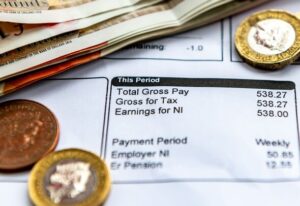
Workers could see a £3,000 hit to their income if a proposed change to National Insurance (NI) policy is introduced in Chancellor Rachel Reeves’s upcoming Autumn Budget.
The Labour Government is reportedly considering an increase in the National Insurance contribution rate paid by employers, a move that could impact take-home pay if employers adjust salaries to cover the higher tax expense.
Research from the think tank PolicyEngine suggests that if employer NI contributions increase by one percentage point – rising from 13.8% to 14.8% – businesses may reduce salaries to balance the higher cost.
Currently, for an employee earning £30,000, an employer pays £2,884 in NI contributions, making the total cost of employment £32,884.
Under the proposed increase, contributions would rise to £3,093 for the same salary. To maintain the total employment cost, employers might adjust salaries to £29,818, reducing employees’ annual income.
Melanie Pizzey, CEO and Founder of the Global Payroll Association, said: “Whilst pay cuts aren’t out of the question, a freeze on pay increases is the least they can expect in the short to medium term.”
Ms Pizzey added: “With inflation continuing to rise, this will inevitably result in a real-term pay cut down the line.”
Experts at the Institute of Economic Affairs (IEA) noted that while an increase in the employer National Insurance (NI) rate might not directly breach Labour’s promise not to raise taxes on workers, the burden often shifts to employees. The IEA explained that similar to how VAT increases prices for consumers, higher employer NI costs are frequently passed on to workers through reduced wages.
Tom Clougherty, IEA executive director and Ralph Harris Fellow, said: “The Government’s rumoured plan to increase employer National Insurance contributions highlights two important principles of tax policy.
“First, the incidence of a tax doesn’t always fall on the person who pays it. When we tax businesses, it is often workers who end up bearing the burden in the form of lower wages.
“This means the idea of tax hikes that don’t hit ‘working people’ is little more than a political fantasy.
“Second, tax affects behaviour – and the choices people make in response to a tax increase or a tax cut can have a significant impact on how much revenue is raised.”
Mr Clougherty continued: “A good tax system would seek to be as transparent as possible about who really foots the bill, while also seeking to minimise its impact on economic decision-making. We are a very long way from that ideal at the moment.”
Nikhil Woodruff, chief technology officer at PolicyEngine, said: “PolicyEngine’s analysis reveals that reforms to employer-side National Insurance could generate billions in revenue, but the actual amount depends on how employers pass on the costs – with full pass-through to employees lowering the revenue impacts by up to 50%.”
A UK Government spokesperson said: “We do not comment on speculation around tax changes outside of fiscal events.”
Chancellor Rachel Reeves will announce the Autumn Budget on Wednesday, October 30.



















